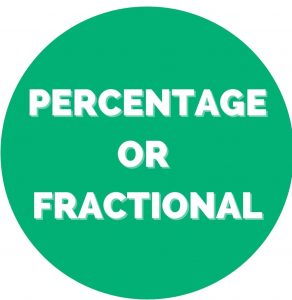How to Leave a Gift To Charity
Making a Will is the only way you can be sure your wishes will be followed after you’re gone. If you don’t make a Will, the law will dictate how your Estate is distributed meaning part or all of your Estate may end up going to people you never intended to benefit.
If you do have relatives and you don’t make a Will, your relatives may disagree about what should happen with your Estate.
If you have no next of kin and no Will, your Estate will automatically pass to the Crown.
Creating a Will therefore will ensure you intentions are clear and carried out.
Preparing your Will
You can write your Will yourself, or you can engage a professional to write your Will for you.
Writing a Will yourself can seem to be the easier and less costly option. However keep in mind that do-it-yourself kits and online options are often simplified and can leave out important details, such as what is to happen if a beneficiary has already passed away by the time your Will is read.
By engaging a professional, such as a solicitor or public trustee with extensive experience in writing a Will, you can be confident your Will covers all important aspects and considerations. You can Find a Solicitor or Find a Professional Advisor through the Law Society or Institute in your state or territory.
Before you prepare your Will, check our helpful guide on things to consider and decisions you will need to make, including whether to include a charitable bequest.
The Six Steps to Writing your Will
|
|
Think about everything you own (your estate and assets). You can leave these to your loved ones and your favourite charities. To consider those charities, use our Find a Charity tool. |

|
There are different types of gifts you can give to charity, but all will make a lasting impact. Don’t forget your superannuation. This is not typically covered by your Will as it is held by a trustee. You could choose to add your super to your estate and gift it to your favourite charity. |

|
This is the person who will ensure your final wishes are carried out. Alternatively, if you don’t have a suitable nominee, you can select a State Trustee and their fees are paid from the money you leave behind. |

|
We recommend writing a Will with a solicitor to ensure it is a recognised legal document. |

|
Sign in front of two witnesses who are over 18 years old and not beneficiaries. Make sure each page has your complete signature. Everyone should then use the same pen to sign and date the last page. |
|
|
Make sure your executors have a copy of your Will and keep a copy somewhere safe and secure. If you are including a charitable gift, you may want to let your loved ones know so your wishes are carried out. |
Including a charity in your Will
We’re often not able to give as generously during our lives as we might like to. Leaving a gift in your Will is a great way to support the vital work of charities you care after your other financial considerations have been taken care of, and benefitting your charity of choice.
Your gift, whether large of small, a percentage of your Estate or a specific sum of money or other assets, will be gratefully received by your chosen charity.
And you will make your mark, creating a positive impact on the lives of many Australians, including potentially your own children, family and friends.
If you have any questions about leaving a charitable gift in your Will, please contact your chosen charity to discuss it with them in detail.
You will find their contact details on their individual page – Find a Charity
The four different types of gifts
There are four main types of gifts you can leave in your Will, including those you may leave to charity. Please discuss with your solicitor the type of gift that will best suit you and your Estate.
 |
One of the most common ways to leave a charitable gift, a residual gift is the remainder of your Estate after first leaving gifts to your loved ones and payment of any financial commitments, funeral arrangements etc. Example wording
|
 |
Another common way to leave a charitable gift, a pecuniary or specific gift clearly specifies the donation. It can be money, property, stocks and/or shares. Example wording: |

|
This comprises your entire Estate and is usually left by those without family or other preferred beneficiaries, or those wanting to achieve something very significant with their gift. |
|
|
This is a gift expressed as a percentage or fraction of your Estate. Dividing your Estate by a percentage or fraction takes into account the changing value of your Estate which can occur due to factors such as inflation, property fluctuations and changes to the composition of your Estate over time. |
Click here to download this information.
Discuss with a professional the type of gift that will best suit you and your Estate.
Charitable gifts in Wills of property, stocks and shares are exempt from capital gains tax.



